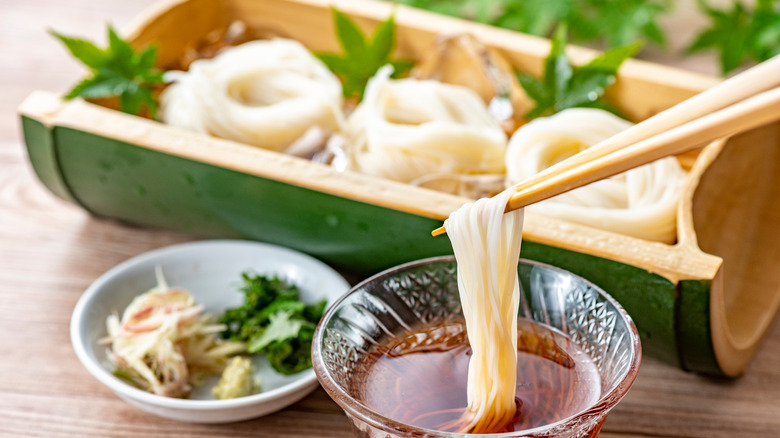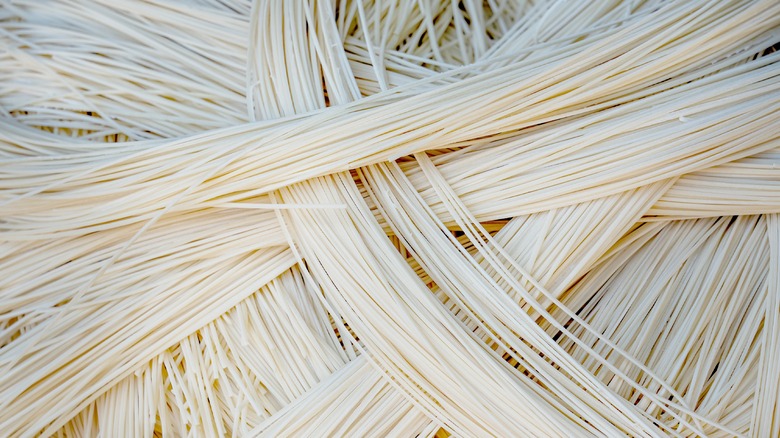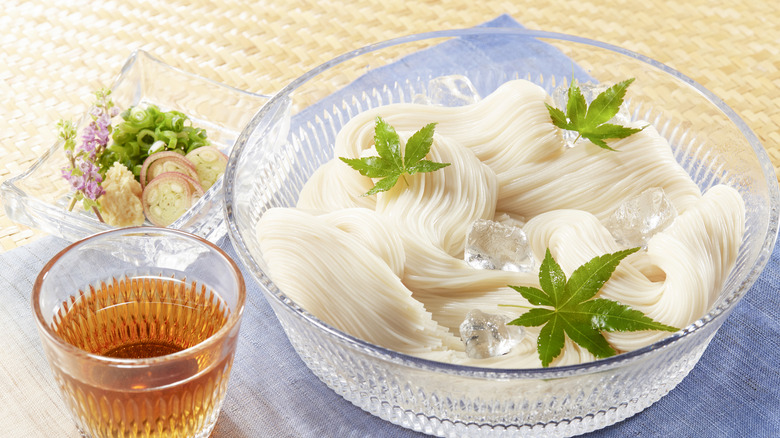Why You Always Should Rinse Somen Noodles After They're Boiled
There are several different types of Asian noodles out there. Some are popular and well-known, such as ramen, while others are lesser-known, such as somen. According to Woodland Foods, somen noodles are extremely thin, white noodles made from wheat. While ramen noodles are usually served and eaten with a hot broth, somen noodles are traditionally served cold, per The Washington Post. This makes them similar to lo mein noodles, which can be served cold or hot. Because somen is usually eaten cold, it is a perfect dish for hot and humid Japanese summers.
According to Tokyo Central, there are plenty of ways to incorporate somen noodles into your diet. You can combine them with seaweed, for a healthy, seafood-inspired dish. Additionally, though somen is usually eaten cold, you could even pair the noodles with a broth or soup during colder months. Regardless of how you choose to eat somen, it's very important to rinse them after boiling them for a key reason.
Rinsing somen noodles removes excess oil
MasterClass reports that somen noodles are hand-stretched to achieve the perfect thinness. After the noodles are stretched, they are left to dry, but they are coated with vegetable oil so they don't completely dry out. This leaves an oily residue on the noodles, which can give them a slimy texture. So, to avoid this issue, you should always make sure to rinse somen after boiling.
To rinse the noodles, simply put them in a colander, place them under running water, and use both of your hands to carefully wash them, per Tokyo Central. Before rinsing somen, ensure that your hands do not have soap, hand sanitizer, or any other substance on them; the smell of these substances will be transferred to the noodles, making for an unpleasant dish. On top of removing oily residue, rinsing somen also makes the noodles shinier, helping your dish look more visually appealing.
More somen tips
One key thing you should do to perfect somen noodles is to boil them in a good amount of water, per Ibonoito. If you fail to use plenty of water when boiling somen, the noodles will begin to adhere to each other, resulting in a sticky and unappetizing texture. Just as adding enough water is a crucial step during the boiling process, rinsing is a crucial step to remember after the boiling process has concluded, as it also affects the texture of your somen.
Storing somen can be a bit tricky, as the noodles are prone to absorbing the smells of surrounding dishes, per Tokyo Central. Because of this, if you are storing somen in your refrigerator, you should do your best to keep somen away from other foods. An easy way to isolate somen is to store it in an air-tight container; this will prevent the air from your refrigerator, which is filled with the aromas of other foods, from seeping into the noodles.


